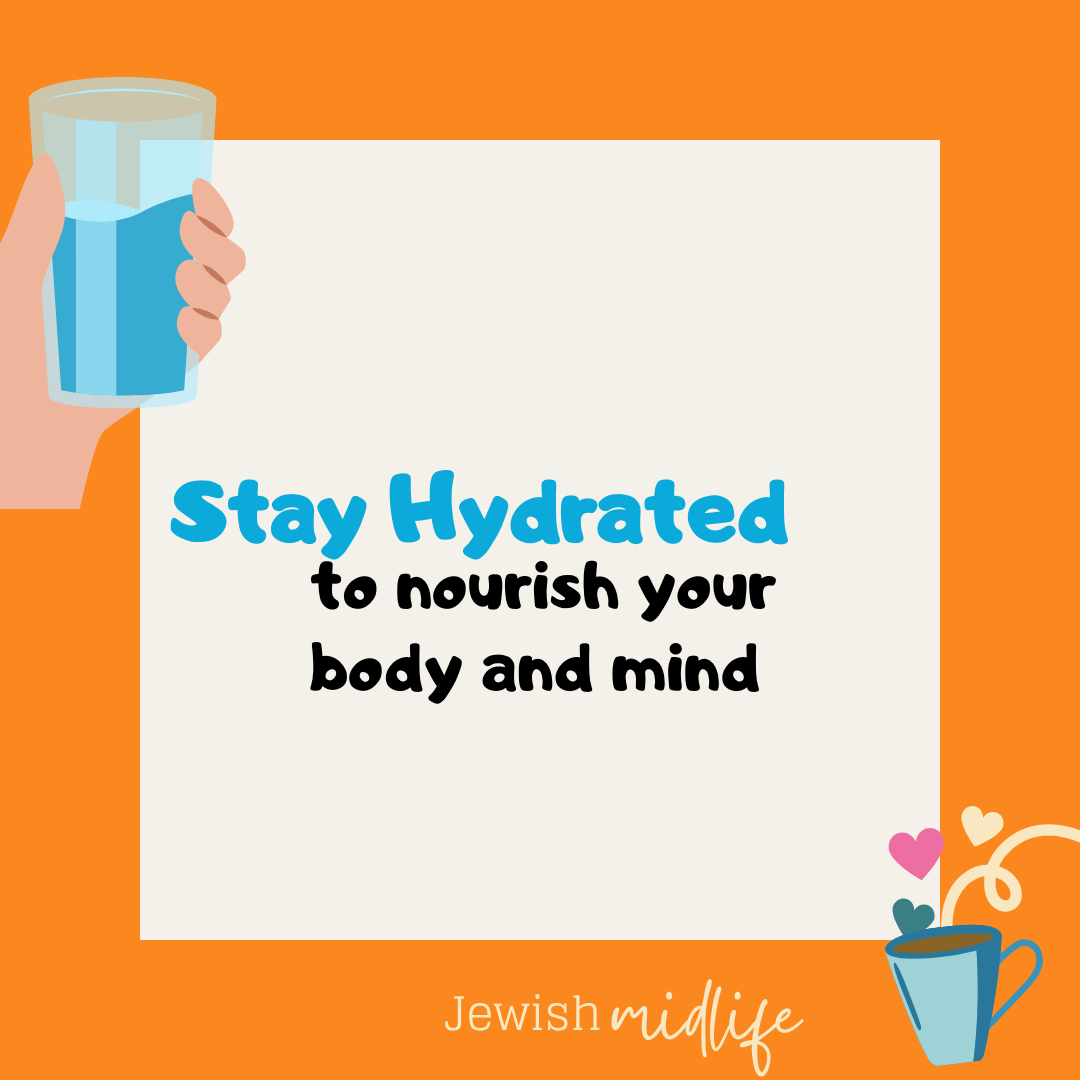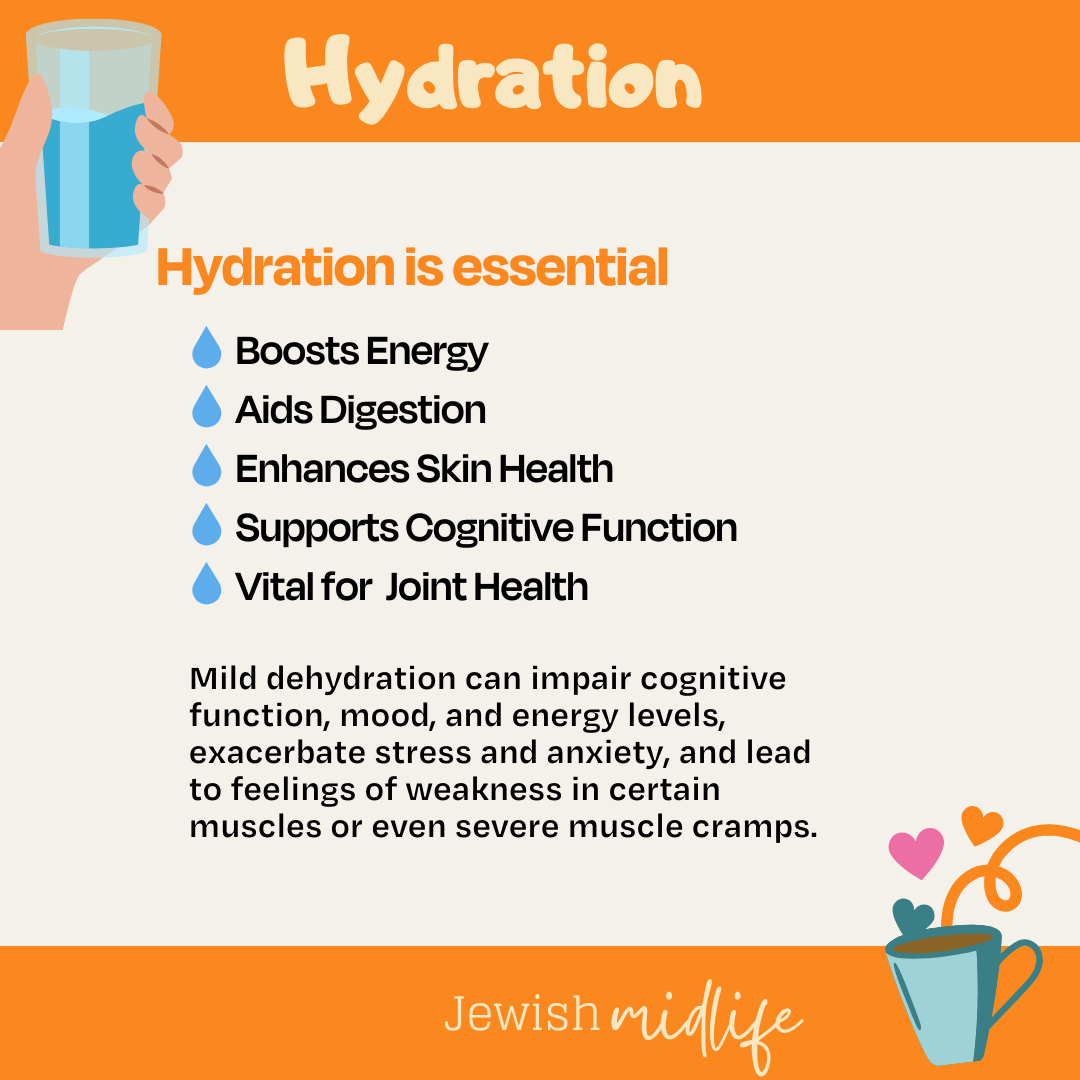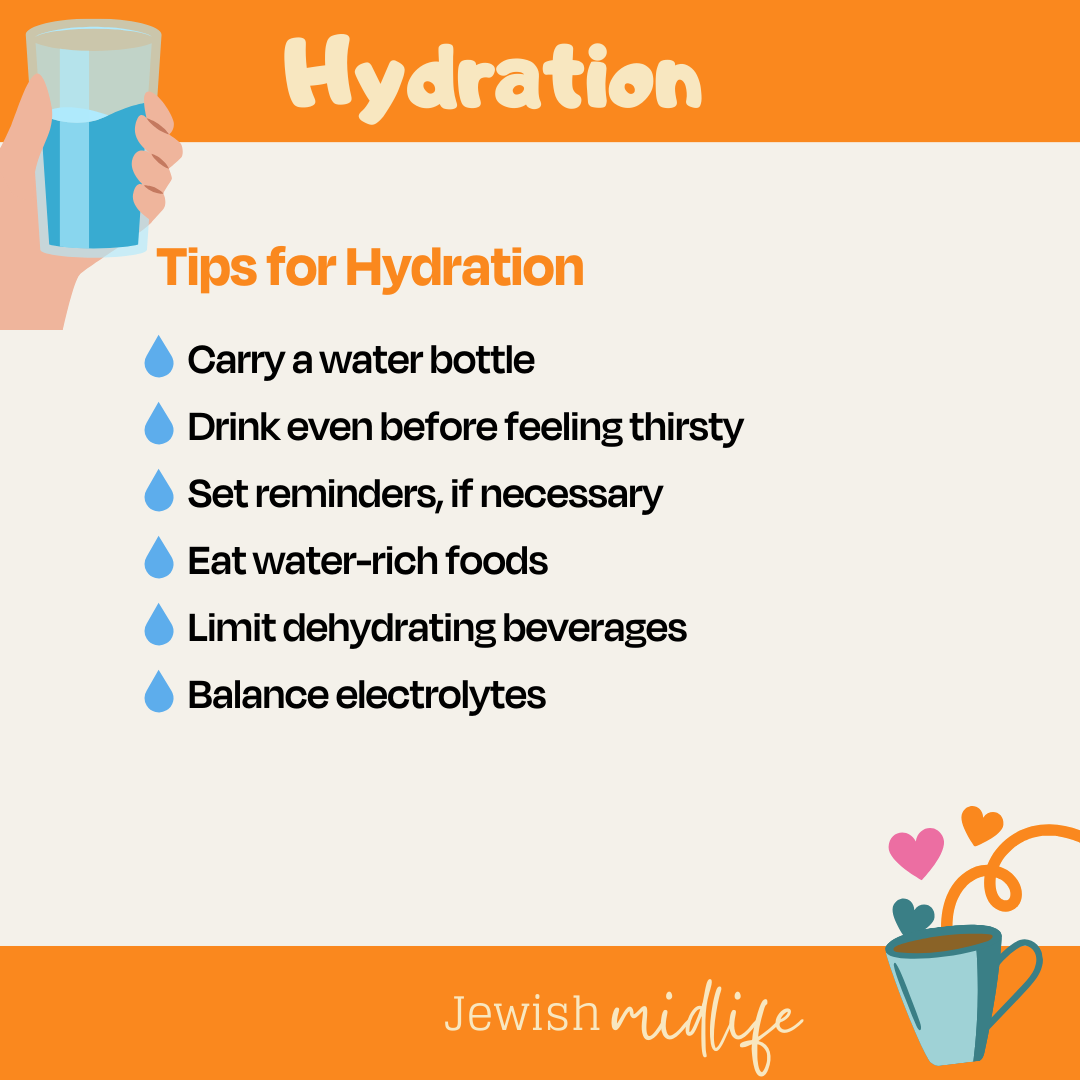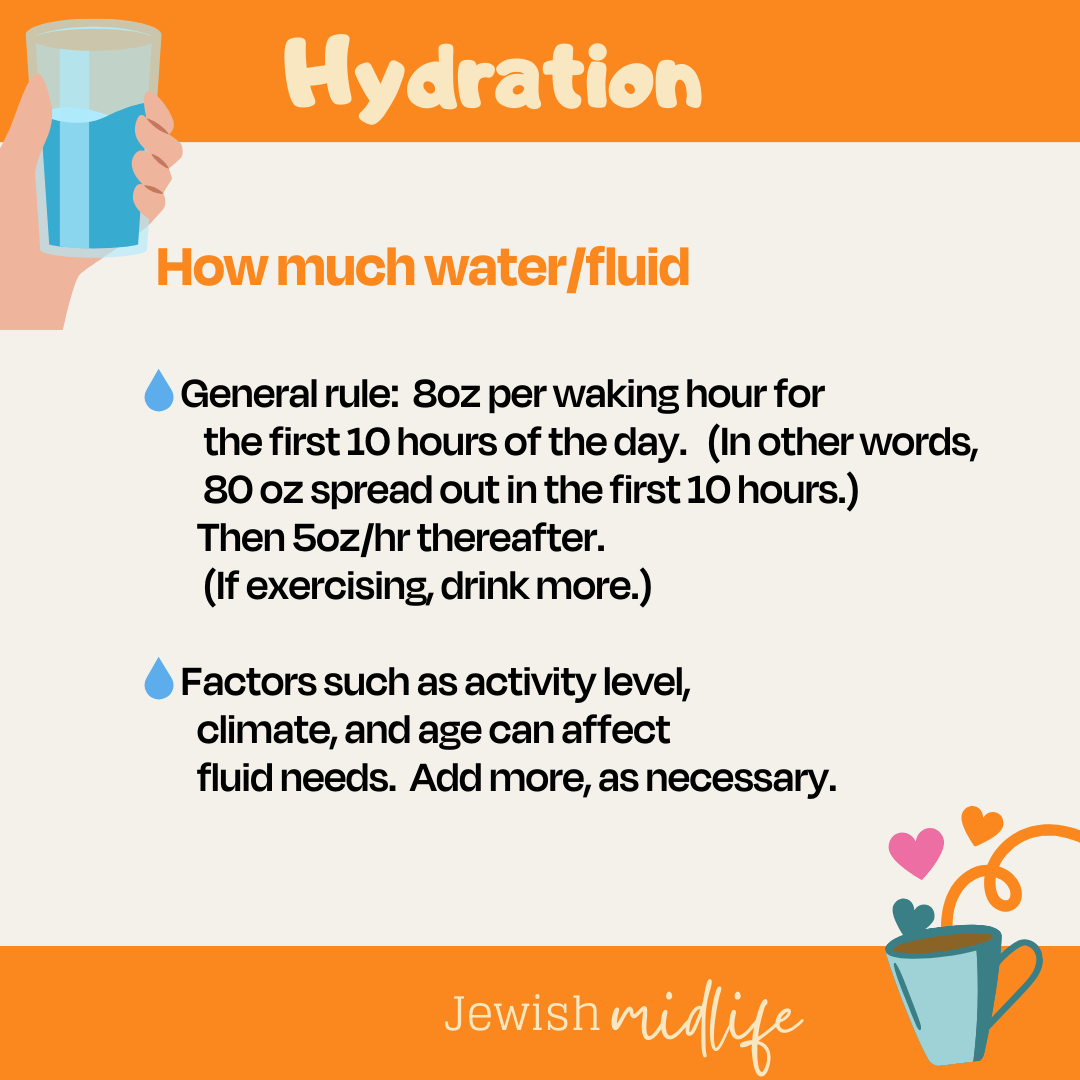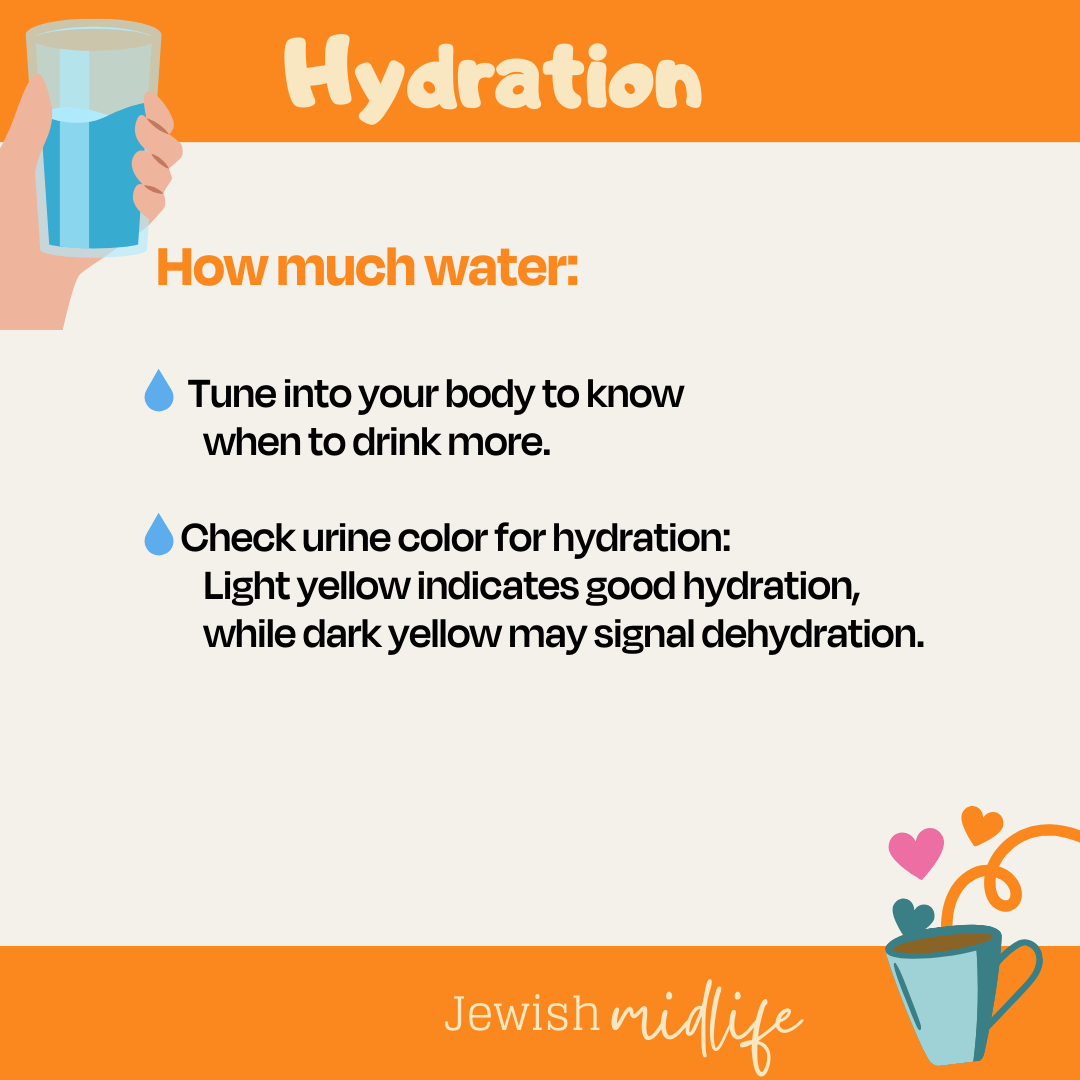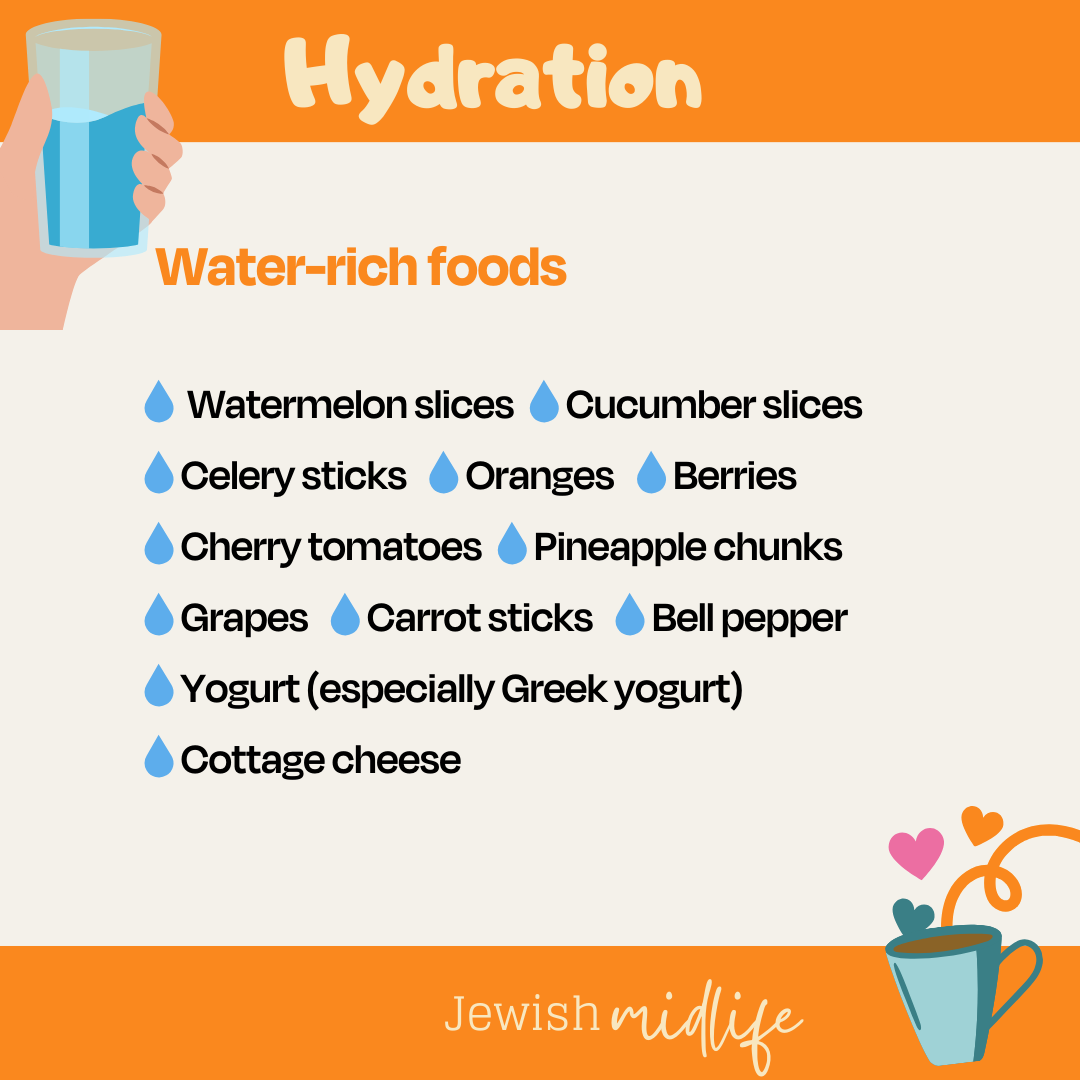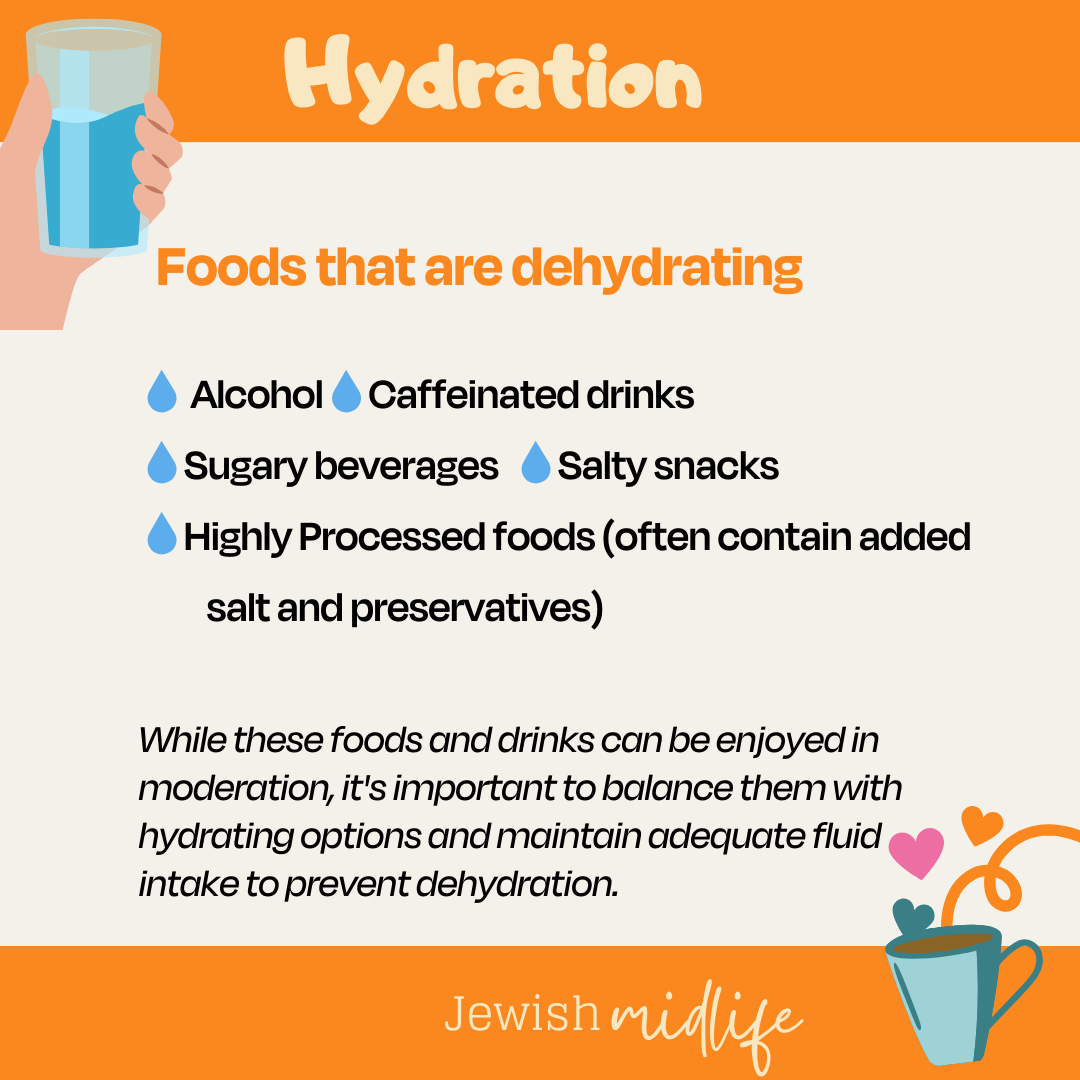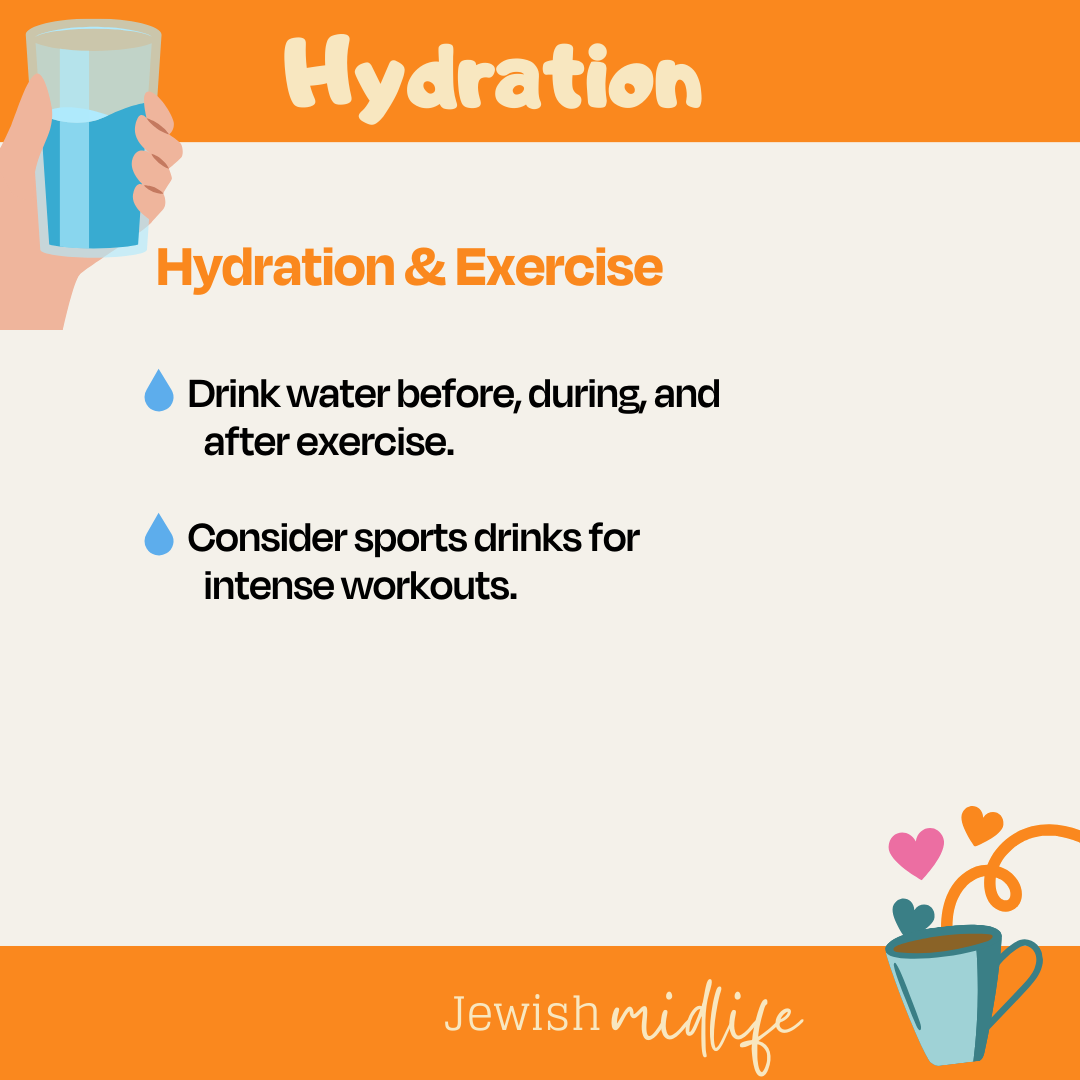Even mild dehydration can impair cognitive function, mood, and energy levels, exacerbate stress and anxiety, and lead to feelings of weakness in certain muscles or even severe muscle cramps.
Hydration is essential
- Boosts Energy
- Aids Digestion
- Enhances Skin Health
- Supports Cognitive Function
- Vital for Joint Health
Tips for Hydration
- Carry a water bottle
- Drink even before feeling thirsty
- Set reminders, if necessary
- Eat water-rich foods
- Limit dehydrating beverages
- Balance electrolytes
How much water/fluid to consume
General rule: 8oz per waking hour for the first 10 hours of the day. Then 5oz/hr thereafter. (If exercising, drink more.) Factors such as activity level, climate, and age can affect fluid needs. Add more, as necessary.
How to monitor hydration
Tune into your body to know when to drink more. Check urine color for hydration: Light yellow indicates good hydration, while dark yellow may signal dehydration.
Water-rich foods
- Watermelon slices
- Cucumber slices
- Celery sticks
- Oranges
- Berries
- Cherry tomatoes
- Pineapple chunks
- Grapes
- Carrot sticks
- Bell pepper
- Yogurt (especially Greek yogurt)
- Cottage cheese
Foods that are dehydrating
- Alcohol
- Caffeinated drinks
- Sugary beverages
- Salty snacks
- Highly Processed foods (often contain added salt and preservatives)
While these foods and drinks can be enjoyed in moderation, it’s important to balance them with hydrating options and maintain adequate fluid intake to prevent dehydration.
Hydration & Exercise
- Drink water before, during, and after exercise.
- Consider sports drinks for intense workouts.

